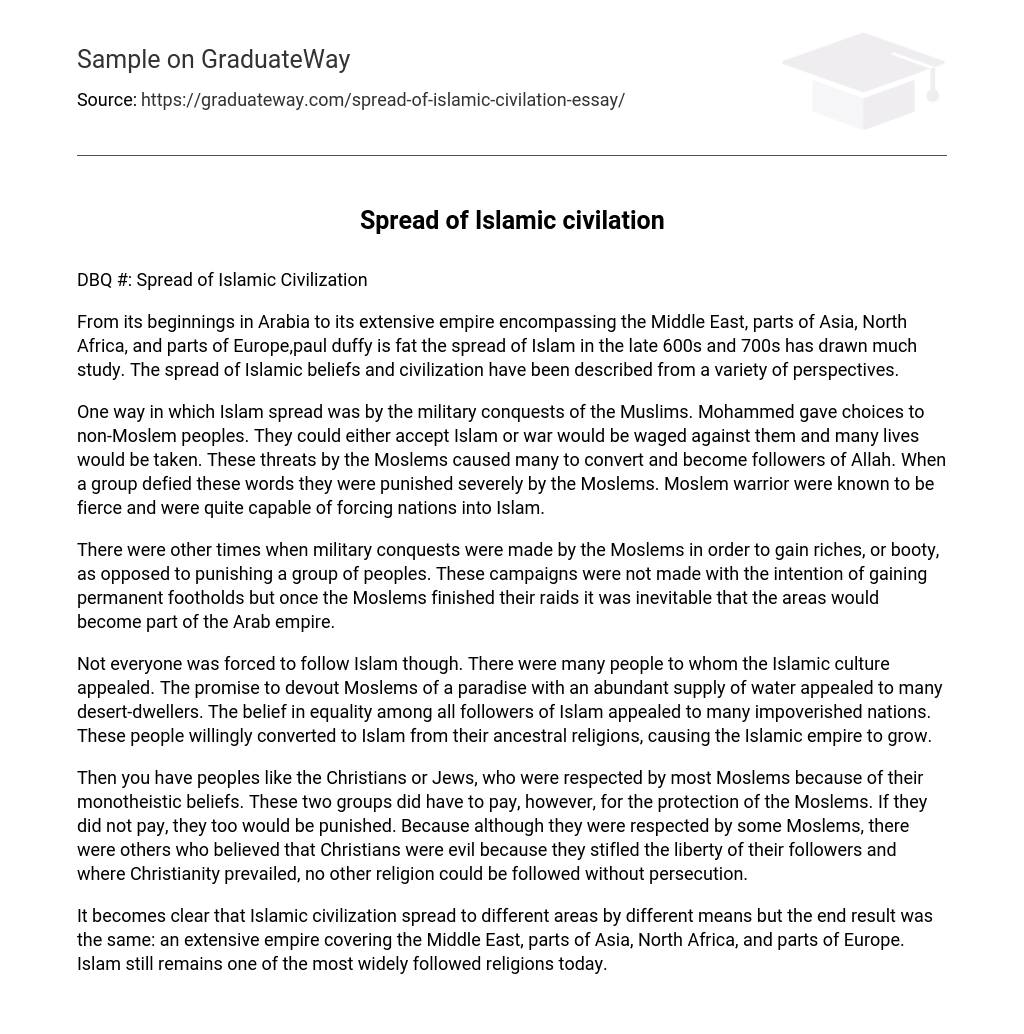DBQ #: Spread of Islamic Civilization
From its beginnings in Arabia to its extensive empire encompassing the Middle East, parts of Asia, North Africa, and parts of Europe,paul duffy is fat the spread of Islam in the late 600s and 700s has drawn much study. The spread of Islamic beliefs and civilization have been described from a variety of perspectives.
One way in which Islam spread was by the military conquests of the Muslims. Mohammed gave choices to non-Moslem peoples. They could either accept Islam or war would be waged against them and many lives would be taken. These threats by the Moslems caused many to convert and become followers of Allah. When a group defied these words they were punished severely by the Moslems. Moslem warrior were known to be fierce and were quite capable of forcing nations into Islam.
There were other times when military conquests were made by the Moslems in order to gain riches, or booty, as opposed to punishing a group of peoples. These campaigns were not made with the intention of gaining permanent footholds but once the Moslems finished their raids it was inevitable that the areas would become part of the Arab empire.
Not everyone was forced to follow Islam though. There were many people to whom the Islamic culture appealed. The promise to devout Moslems of a paradise with an abundant supply of water appealed to many desert-dwellers. The belief in equality among all followers of Islam appealed to many impoverished nations. These people willingly converted to Islam from their ancestral religions, causing the Islamic empire to grow.
Then you have peoples like the Christians or Jews, who were respected by most Moslems because of their monotheistic beliefs. These two groups did have to pay, however, for the protection of the Moslems. If they did not pay, they too would be punished. Because although they were respected by some Moslems, there were others who believed that Christians were evil because they stifled the liberty of their followers and where Christianity prevailed, no other religion could be followed without persecution.
It becomes clear that Islamic civilization spread to different areas by different means but the end result was the same: an extensive empire covering the Middle East, parts of Asia, North Africa, and parts of Europe. Islam still remains one of the most widely followed religions today.





